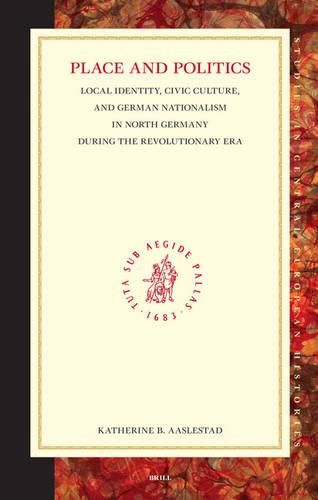Readings Newsletter
Become a Readings Member to make your shopping experience even easier.
Sign in or sign up for free!
You’re not far away from qualifying for FREE standard shipping within Australia
You’ve qualified for FREE standard shipping within Australia
The cart is loading…






This study examines North Germany during the transformative era of the French Revolution, Napoleonic occupation, and Wars of Liberation; it reveals international exploitation, military occupation, economic destruction of the city-state Hamburg as well as the republic’s liberation and post-Napoleonic autonomy. Examining shifts within local culture and the role of public opinion on civic morality, this book underscores the relationship between the civic ethics, public language, and collective memory in the construction of political identity and concludes that the transformation in values at the local level ultimately provides the crucial direction in the process of modern nation-building. Throughout the 1800s, the public commemoration and memory of occupation and liberation, rather than the actual Napoleonic experience, shaped the development of German nationalism.
$9.00 standard shipping within Australia
FREE standard shipping within Australia for orders over $100.00
Express & International shipping calculated at checkout
This study examines North Germany during the transformative era of the French Revolution, Napoleonic occupation, and Wars of Liberation; it reveals international exploitation, military occupation, economic destruction of the city-state Hamburg as well as the republic’s liberation and post-Napoleonic autonomy. Examining shifts within local culture and the role of public opinion on civic morality, this book underscores the relationship between the civic ethics, public language, and collective memory in the construction of political identity and concludes that the transformation in values at the local level ultimately provides the crucial direction in the process of modern nation-building. Throughout the 1800s, the public commemoration and memory of occupation and liberation, rather than the actual Napoleonic experience, shaped the development of German nationalism.